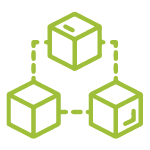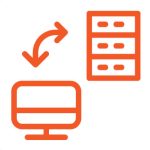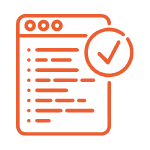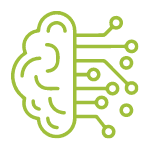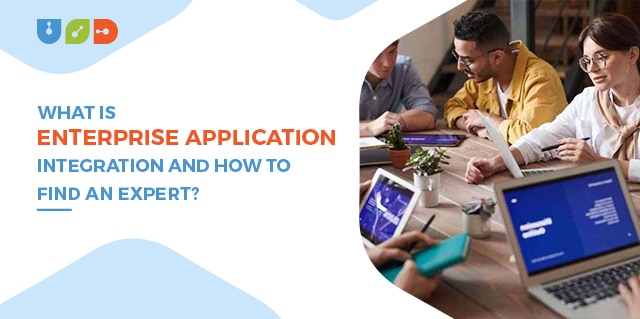Do you ever feel like your business applications operate on separate islands? Information gets lost in transit, manual data entry slows processes down, and reports lack a unified view. It is a classic sign of data silos, where applications hold information but struggle to share it effectively. As per my experience, data silos waste extensive capital that can generate business and develop new avenues for expansion.
Enterprise Application Integration or EAI is gaining fame in diverse industries and divisions. It acts as a bridge, allowing seamless communication and data exchange between various enterprise applications. In this era of digital connectivity and latest technologies, applications must be able to communicate with each other and share data. This is where integration comes at rescue. Let’s explore the meaning, key components, and Benefits of EAI and how to find an EAI expert.
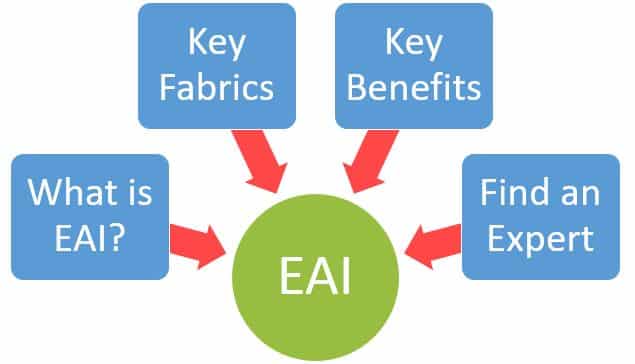
What is Enterprise Application Integration?
EAI refers to the process of seamlessly integrating applications within an organization to enable smooth data flow, communication, and collaboration. It breaks down data silos and connects disparate systems for a holistic digital administration. EAI streamlines business processes, enhances operational efficiency, and achieves a comprehensive data view across the enterprise.
organizations rely on a multitude of software applications and systems to manage various aspects of their operations. From customer relationship management (CRM) to enterprise resource planning (ERP), each application plays a critical role in driving efficiency and productivity. However, isolated systems hinder collaboration, data sharing, and decision-making across departments and functions, requiring EAI.
Key Components of EAI
Understanding the fabric of integration architecture allows companies to reap the maximum benefits from projects. Following are the key components of enterprise application integration:
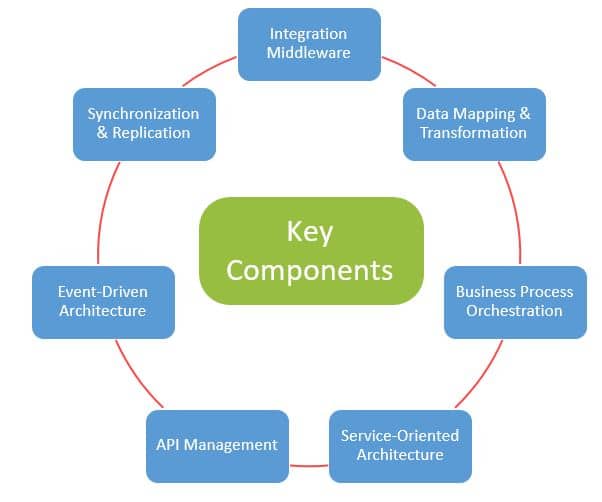
1. Integration Middleware
Integration middleware serves as the backbone of EAI, providing the necessary infrastructure and tools to facilitate communication and data exchange between disparate systems.
2. Data Mapping and Transformation
It involves mapping data from one system to another and transforming it into the required format to ensure compatibility and consistency across systems.
3. Business Process Orchestration
It enables organizations to orchestrate complex business processes that span multiple systems, ensuring seamless workflow automation and efficiency.
4. Service-Oriented Architecture (SOA)
SOA principles play a significant role in EAI by promoting modular, reusable, and interoperable software components called services.
5. API Management
API management platforms provide capabilities such as API gateway, security, monitoring, and analytics, ensuring secure and reliable API-based integration.
6. Event-Driven Architecture (EDA)
It may leverage event-driven architecture to enable real-time data exchange and event processing across systems.
7. Data Synchronization and Replication
It involves ensuring data consistency and synchronization across multiple systems through data synchronization and replication techniques.
Key Benefits of EAI
Although such unification projects are complex, time-taking, and cost higher, they prove to be indispensable assets. Here are the key benefits of enterprise application integration:
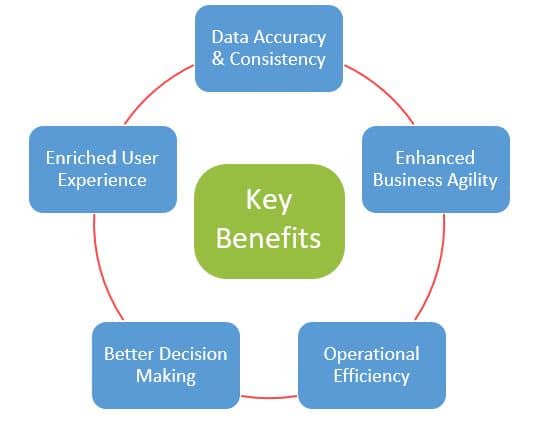
1. Data Accuracy and Consistency
One of the primary benefits of EAI is the ability to ensure data accuracy and consistency across multiple systems. By integrating disparate systems, organizations can eliminate duplicate data entry, reduce errors, and maintain a single source of truth for critical business information.
2. Enhanced Business Agility
EAI enables organizations to respond quickly to changing market dynamics and business requirements. It provides real-time access to data and enables seamless communication between systems. EAI empowers organizations to adapt to evolving business needs, seize new opportunities, and stay ahead of the competition.
3. Increased Operational Efficiency
By automating manual processes and streamlining workflows, EAI helps organizations improve operational efficiency and reduce costs. Tasks that were once time-consuming and error-prone can now be automated, allowing employees to focus on more strategic initiatives that drive business growth.
4. Better Decision-Making
With EAI, organizations gain access to timely and accurate data from across the enterprise, enabling informed decision-making at all levels. By providing a unified view of data, EAI helps executives and decision-makers gain valuable insights into business performance, trends, and opportunities.
5. Enriched Customer Experience
EAI plays a crucial role in delivering a seamless and personalized customer experience. Experts can integrate customer-facing systems such as CRM and e-commerce platforms with back-office systems. By doing so, organizations can provide customers with real-time access to information, personalized recommendations, and efficient support services.
How to Find an EAI Expert?
Finding an expert Enterprise Application Integration agency can make a significant difference in the success of your integration projects. An EAI agency can help you untie the complexities of integrating diverse systems, streamline business processes, and optimize data flow. Here are some steps to find an EAI expert agency that meets your business needs:

1. Define Your Requirements
Start by outlining your specific integration goals and business requirements. Determine the scope of the project, the systems and applications that need to be integrated, and any unique challenges you expect to encounter. This will help you find an agency with the right expertise and experience to address your needs.
2. Research and Shortlist Agencies
Conduct thorough research to identify potential EAI agencies. Look for agencies with experience in your industry and a track record of successful integration projects. Review their portfolios, case studies, and client testimonials to assess their expertise and reliability.
3. Evaluate Technical Proficiency
Evaluate the technical proficiency of each agency. Check their familiarity with different integration tools, frameworks, and technologies such as Enterprise Service Bus (ESB), API management platforms, data transformation tools, and service-oriented architecture (SOA). Ensure they have experience working with the systems you use.
4. Consider Communication and Collaboration
Communication and collaboration are key to a successful partnership. Look for an agency that prioritizes clear and transparent communication, provides regular project updates, and involves you in key decisions. Their ability to collaborate with your team and adapt to your feedback is important.
5. Check References
Request references from previous clients and contact them to learn about their experiences with the agency. Ask about the agency’s performance, reliability, quality of work, and overall satisfaction with the integration projects.
6. Review Contracts and Pricing
Carefully review the agency’s contract terms, pricing models, and payment schedules. Make sure you understand the services provided, project timelines, and any potential additional costs. Choose an agency that offers clear and fair terms.
7. Consider Innovation and Adaptability
Choose an agency that embraces innovation and stays updated with the latest trends and technologies in EAI. Their ability to adapt to emerging technologies and offer creative solutions will benefit your organization in the long run.
8. Evaluate Cultural Fit
Finally, consider the cultural fit between your organization and the agency. A strong cultural alignment can lead to a smoother and more productive working relationship. Look for an agency whose values, communication style, and work ethic align with your own.
Conclusion
Enterprise Application Integration acts as a bridge between isolated systems, fostering seamless data exchange and driving significant benefits. It improves data accuracy, enhances business agility, and elevates decision-making. By following the steps outlined to find an EAI expert, you can ensure a successful integration project that unlocks the true potential of your data. It also streamlines your business operations for maximum efficiency and growth. Hire Unique Software Development for EAI projects or integrating in-house applications with third-party systems.





